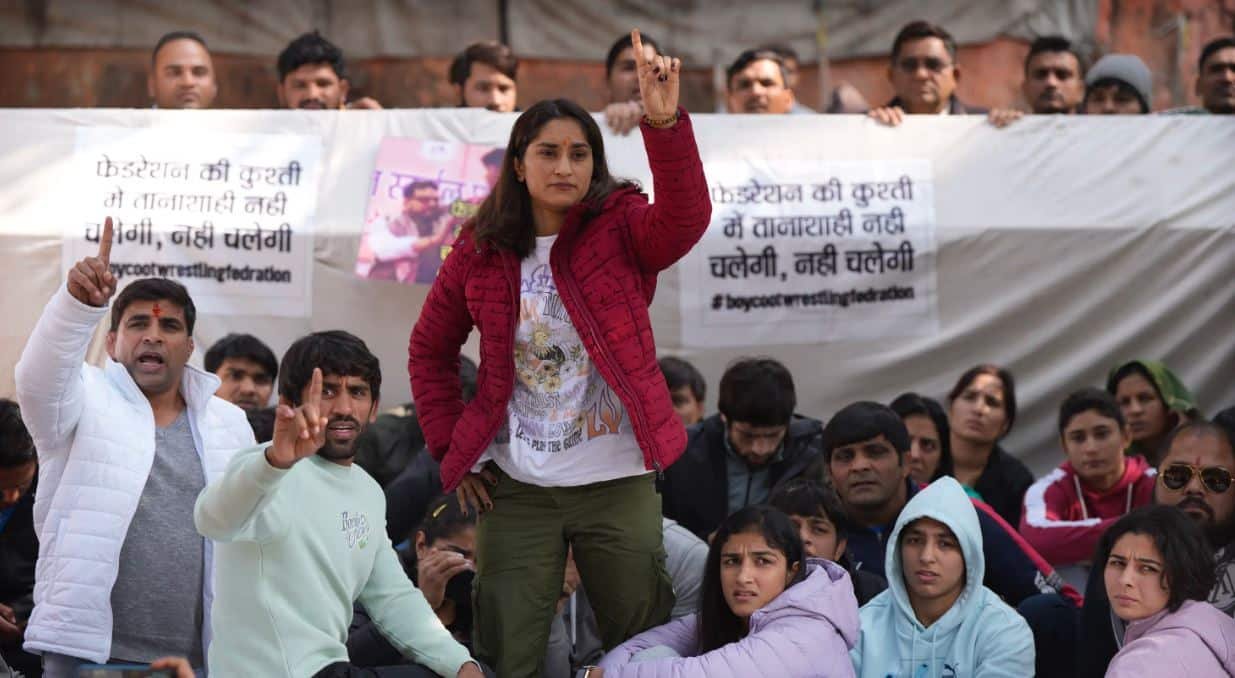Top female wrestlers in India are protesting against Brij Bhushan Sharan Singh, an influential politician who has been accused of sexually harassing and intimidating female athletes, calling for him to be held responsible.
Singh has been accused of harassing seven female wrestlers and one minor.
Who is Brij Bhushan Sharan Singh?
Singh, who has been heading the Wrestling Federation of India (WFI) since 2011, is a six-time member of parliament from Prime Minister Narendra Modi’s Bharatiya Janata Party (BJP).

No action against harassment:
Following accusations of sexual harassments, a panel was formed by the Indian Olympic Association (IOA) in January to investigate the matter. The Sports Minister of India, Anurag Singh Thakur, had stated that the investigation would be concluded within four weeks. Although the inquiry report was prepared in April, the conclusions were not disclosed to the public.
Despite mounting pressure for his resignation as President of the WFI, Singh has chosen to disregard these demands He has refuted the accusations, stating that they are part of a scheme to tarnish his image.
The wrestlers in India have claimed that the government has not acted quickly enough in response to allegations of sexual harassment, despite the sport ministry’s January announcement that it would investigate the matter. This complaint comes three months after the ministry’s statement.
Singh was booked by the Delhi Police on April 28, but has escaped further action thus far.

Background of female wrestlers in India:
Wrestling in India is plagued by sexual harassment, with many wrestlers hailing from humble backgrounds in the northern state of Haryana, which can make them vulnerable to intimidation by powerful officials.
This problem is not limited to wrestling, as other sports in India have also seen incidents of sexual harassment, including the national cycling team and the women’s under-17 football team. The Sports Authority of India received 30 complaints of sexual harassment in the past five years, according to the sports minister’s response to a parliamentary query.







